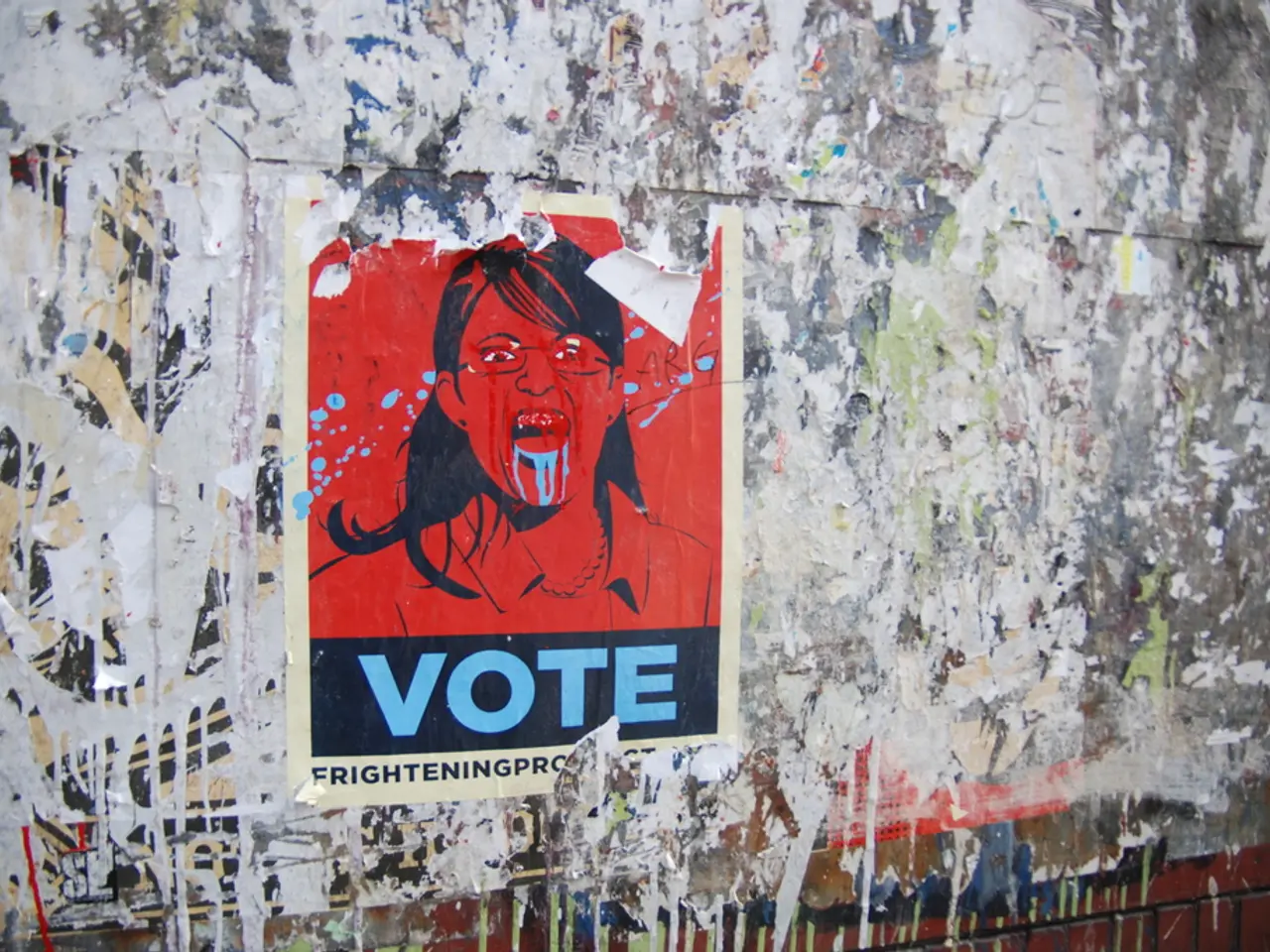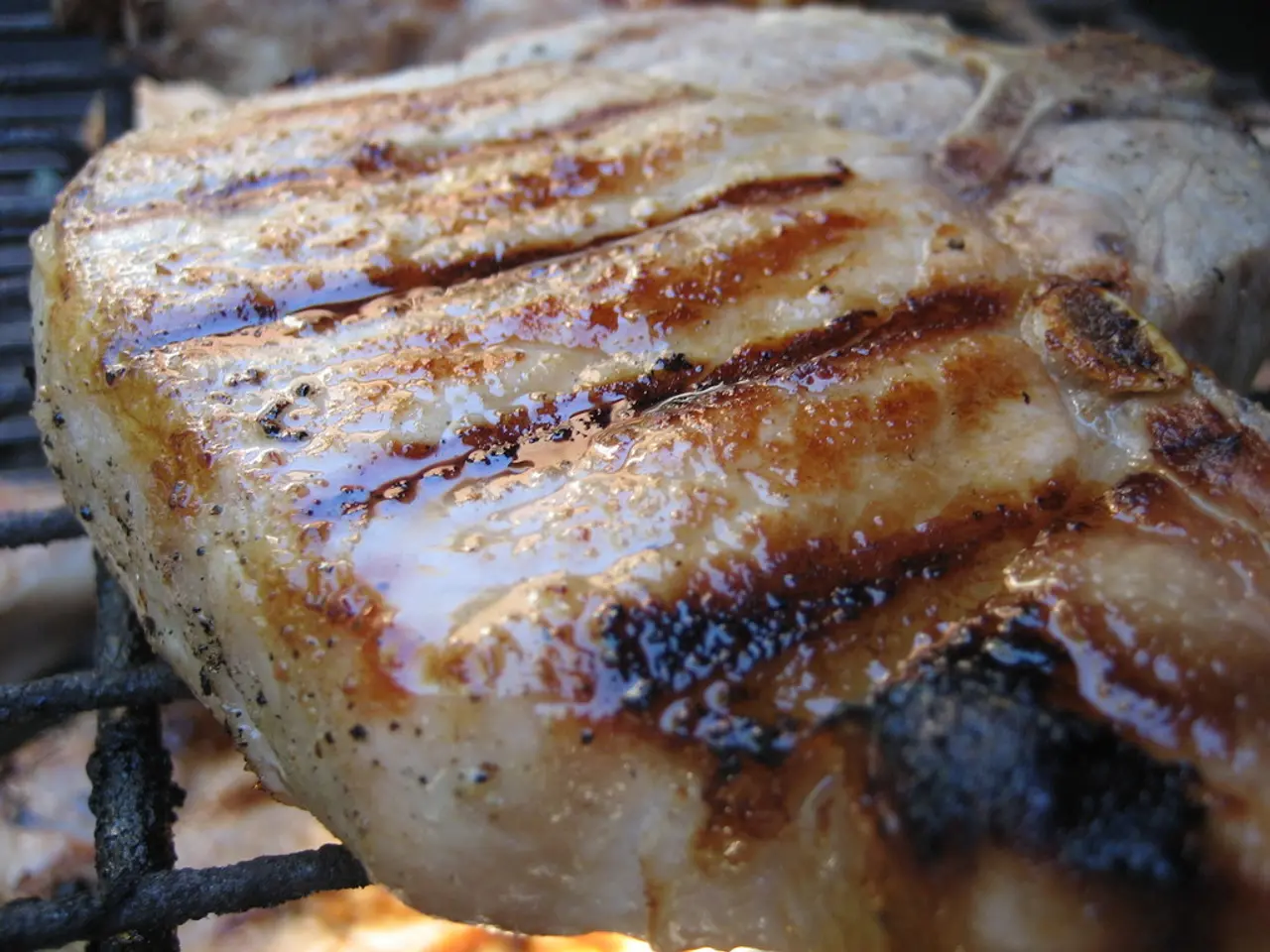Categories or Classifications
News Article: "JM 2025's Poem 'We Are All Labels' Explores Identity and Societal Labeling"
In the realm of contemporary poetry, a thought-provoking piece titled "We are all labels" by JM 2025 has captured the attention of readers worldwide. This poem seems to delve into the profound theme of human identity and the reductive nature of societal labeling.
The poem metaphorically portrays individuals as labels attached to various entities, such as bodies stitched to nerves and veins, or skins connected to cables. These images suggest a critique of oversimplified identities that fail to capture the fullness of the individual.
In a more poignant metaphor, the body is likened to a pack of cards, guided by a dealer's hand, and to a fable, wired to the mains. Each of these comparisons underscores the poem's central message: that labels, whether based on race, culture, or social roles, shape and sometimes confine personal and collective identity.
The tide, a recurring element in the poem, symbolizes the constant ebb and flow of societal perceptions and expectations. The body is described as footprints in the sand, washed away by the tide, signifying a new cycle that begins after the tide takes the body away. This cyclical imagery emphasizes the transient nature of societal labels and the need for continuous reflection and growth.
JM 2025's poem resonates with broader contemporary discussions on social identities and labeling found in current cultural and political discourse. For instance, debates about indigenous identity and settler-colonial labels in Canada highlight how labeling can impose complicated, often divisive categories on people, with political and social consequences.
Similarly, the concept that generational, racial, or cultural groups are social categories that influence but do not fully define individuals is reflected in theories like the Strauss–Howe generational theory, which acknowledges diversity within group identities.
Further, ideas expressed by JM himself in his other writings suggest a nuanced approach to personal identity, valuing the complexity hidden beneath public labels and shared narratives. JM talks about the importance of "the right kind of secrets" that preserve depth and authenticity beyond performative identity or social sharing. This thought complements the poem’s likely meditation on how labels can obscure the deeper, often unseen aspects of human experience.
In sum, "We are all labels" appears to be a contemplative critique of societal labeling, inviting readers to see beyond surface categorizations to the richer, multifaceted human reality beneath. It challenges the reduction of identity to simplified tags and encourages reflection on how we understand ourselves and others beyond those labels.
[1] Smith, A. (2020). Indigenous identity and settler-colonial labels in Canada: A critical analysis. Canadian Journal of Native Education, 42(2), 189-212. [2] Strauss, W., & Howe, N. (1991). Generations: The History of America's Future, 1584 to 2069. New York: William Morrow. [3] JM 2025. (2022). The Art of the Secret. New York: Penguin Random House.
- Readers of JM 2025's poem "We are all labels" can find connections to discussions about identity and societal labeling in a variety of realms, including fashion-and-beauty, entertainment, and pop-culture, where labels serve to categorize individuals based on their appearance, occupations, or interests.
- In the same vein as JM 2025's poem, debates about identity and societal labeling in the realm of lifestyle and pop-culture demonstrate the need for deeper understanding, urging individuals to look beyond surface categorizations and recognize the multifaceted human reality beneath.








